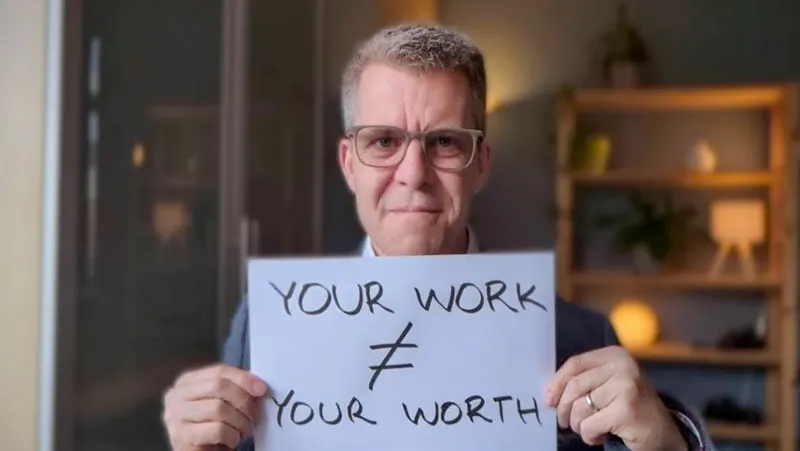Your Work Isn't Your Worth: Lessons from a Tech CEO's Parenting Journey

Meeting Joel Gascoigne, CEO of Buffer, in London during Buffer’s early days left a lasting impression on me. His openness and transparency stood out in the tech world, and I continue to admire how he’s evolved as a leader while navigating fatherhood and entrepreneurship.
Joel recently shared a LinkedIn post about the “profound shift in motivation and purpose” he’s experienced while building Buffer for 14 years while raising two young children. What resonated most was his realization: “Whereas in the past, Buffer could occupy the central and primary spot in terms of my purpose and motivation, that’s not the case anymore.”
The Multi-Dimensional Human
This is where my CBT coach brain kicks into overdrive. Joel’s experience perfectly illustrates one of the core principles I teach clients: your work is not your worth.
In Cognitive Behavioural Therapy (and its cousin REBT), we talk about the danger of escalating our wants and desires into rigid, inflexible demands. “I must succeed at work” becomes “I’m a failure if I don’t.” “I want to be a good parent” becomes “I’m worthless if I make mistakes with my kids.”
But Joel’s approach? It’s healthier. He’s maintaining strong ambition while avoiding the trap of self-rating based on outcomes.
Less Precious, More Effective
My favourite part of Joel’s post might be this nugget: “I have no doubt at all that I’ve been a better leader since becoming a parent.”
He explains that having less time forced him to become more effective and achieve more with others. Plus – and this is the chef’s kiss – “the fact that I have other clear purposes in life makes me less precious about Buffer.”
This is the paradox I see repeatedly with clients: when we stop treating work as the sole determinant of our value, we often become better at it. We take smart risks. We collaborate more effectively. We don’t crumble when things don’t go as planned.
When Joel was becoming a new parent, he described Buffer as “in the midst of decline,” but he didn’t collapse into self-rating (“I’m a failure”). Instead, he acknowledged the reality that things were “in a bad place” and focused on what he could control—steering the company “back towards our original purpose” and implementing “a few years of strategy changes and strong execution” that ultimately returned Buffer to growth and profitability.
The CBT Connection
This perfectly aligns with what I teach about healthy self-evaluation in CBT. Rate your behaviors, not your self. Maintain flexible preferences rather than rigid demands.
Joel closes with something powerful: “You can be a parent with young kids and have a ton of ambition… I’m confident it’s not only possible but the way to have a fulfilling life and a significant impact.”
That’s the sweet spot – confidence not in perfection, but in the process of growth and integration.
In my CBT practice, I see this as the ultimate goal: holding high standards for your behaviour while rejecting the idea that you’re a “better person” if you achieve them or a “worse person” if you don’t.
Key Takeaway
Next time you catch yourself thinking “I must succeed or I’m a failure,” remember Joel’s approach. Get less precious. Measure your actions against your values, not your worth as a person. Your effectiveness and emotional wellbeing will both benefit from this shift.


